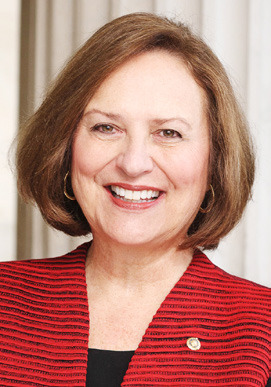From Washington Washington Report Nebraska’s rural hospitals are struggling.
This summer, I visited several hospitals, clinics, and health centers across the state. Our hospitals are staffed by skilled medical professionals doing good work and often saving lives. Nebraska relies on these institutions, especially in rural areas where they can be sparse.
But rising costs are creating serious financial problems—problems that affect hospitals, their patients, and the communities they serve. Because of inflation and the lingering effects of the COVID-19 pandemic, the cost of medical services and staffing in Nebraska has risen by 34 percent.
Those ballooning costs are an existential threat to many hospitals. One report this spring found that 40 percent of our state’s hospitals are in danger of closure because of rising costs. Fifty-one percent of them are in negative margins. That number grew for small rural hospitals: almost 69 percent of them are operating in the red.
This issue isn’t limited to Nebraska. Nationwide, half of our rural hospitals lost money this year. Over 400 of them across the country are considered “vulnerable to closure.” But widespread hospital closures would devastate our rural communities, in Nebraska and beyond.
Many Americans already live hours away from the nearest health care facility, a trip that can be life-threatening in emergency situations. Even one closure can put hundreds more in that position, as well as lengthen hospital trips for those further away from population centers.
It’s critical for Nebraskans, and Americans more broadly, that we protect their local rural hospitals. I’ve heard from patients, hospitals, and health care associations across our state about solutions to this crisis. I introduced one of them as a bill in September.
My Supporting Access to Rural Community Hospitals Act will grant rural hospitals flexibility when choosing reimbursement models, leading to greater financial sustainability and resilience. My Nebraska colleagues Representatives Mike Flood (NE-01) and Adrian Smith (NE-03) joined me on this bill, because they’ve seen firsthand the ways that our hospitals are struggling.
Specifically, the bill will create a more streamlined process for hospitals in the Rural Community Hospital Demonstration (RCHD) program to be designated as Critical Access Hospitals (CAH). Hospitals in the RCHD program only receive cost-based reimbursement for select services. Hospitals designated as CAH receive cost-based reimbursement for all services addressing the needs of their rural communities, which can be a financial game-changer for small, rural hospitals.
Our legislation will grant RCHD hospitals an optional, one-time election period to meet the necessary eligibility requirements to be designated as CAHs.
It will give these essential hospitals more flexibility so they can choose between two beneficial federal programs. They can decide which of these programs enables them to serve their unique communities best. Our struggling hospitals need more financial options to keep their heads above water, and that’s what our legislation will give them.
After visiting with Nebraska medical personnel and hospital staff this summer, I know our rural hospitals need help to keep serving Nebraskans.
Passing the Supporting Access to Rural Community Hospitals Act will give them one solution. I look forward to working with my colleagues so that more rural hospitals get the resources they need to continue serving the public.
Thank you for participating in the democratic process. I look forward to visiting with you again next week.

.jpg)










